It looks like the typical pancake served right out of McDonald’s breakfast menu, but Filipinos call it more appropriately as “hotcakes” because they are best consumed when hot.
Hotcakes, often known as pancakes or flapjacks, have a rich history dating back to ancient civilizations. Indeed, it is thought that the ancient Greeks and Romans developed a type of pancake out of wheat flour, olive oil, honey, and curdled milk.
Pancakes became popular in Europe during the Middle Ages, and were frequently served on Shrove Tuesday, the day before Lent began. This became known as Pancake Day, and it is still observed in several parts of the world today.
Pancakes were popular in America as well, with Native People utilizing cornmeal and other grains and colonists using buckwheat and other components. Hotcakes were a common breakfast item among soldiers throughout the American Civil War.
Hotcakes are still a popular breakfast snack in many areas of the world today, with various cultures and locations having their varieties and toppings. They are offered as a flavorful supper in certain locations and as a sweet dessert in others. Hotcakes have a specific meaning in many cultures and are related with religious or cultural events. Overall, hotcakes have evolved into a popular and diverse snack that has withstood the test of time.
Hotcakes are a popular morning snack in the Philippines and can be found at many restaurants and fast food chains. They are frequently accompanied by syrup, butter, and a variety of toppings like as fruit, whipped cream, and chocolate chips.
Jollibee, a fast food company that serves its distinctive “Jolly Hotcakes” as part of their breakfast menu, is one of the most well-known hotcake brands in the Philippines. The hotcakes are created with a secret buttermilk recipe and served with butter and maple syrup.
Aside from Jollibee, several Filipino bakeries and coffee shops serve hotcakes, frequently with their own distinctive flavors. Ube (purple yam) hotcakes, pandan hotcakes, and chocolate hotcakes are other popular varieties.
Hotcakes are not only a popular breakfast delicacy in the Philippines, but they are also widely offered during merienda, a mid-afternoon snack. They are flexible cuisine that can be eaten alone or with other foods like eggs, bacon, and sausage.
Basted with margarine and sprinkled with white sugar, Pinoy hotcakes are often sold at streetside stalls on markets, near schools, and other densely-populated areas.
Hotcake vs pancake
The names hotcake and pancake refer to the same food item: a flat, round cake formed from batter and fried on a griddle or frying pan. In the Philippines, hotcake is the more generally used phrase, although pancake is favoured in other parts of the world, including the United States.
The recipe and cooking process for hotcakes/pancakes are essentially the same, with regional and cultural variances in ingredients and toppings. Hotcakes are frequently served with butter, syrup, and/or a sprinkle of sugar in the Philippines, whereas pancakes are commonly served with maple syrup and butter in the United States.
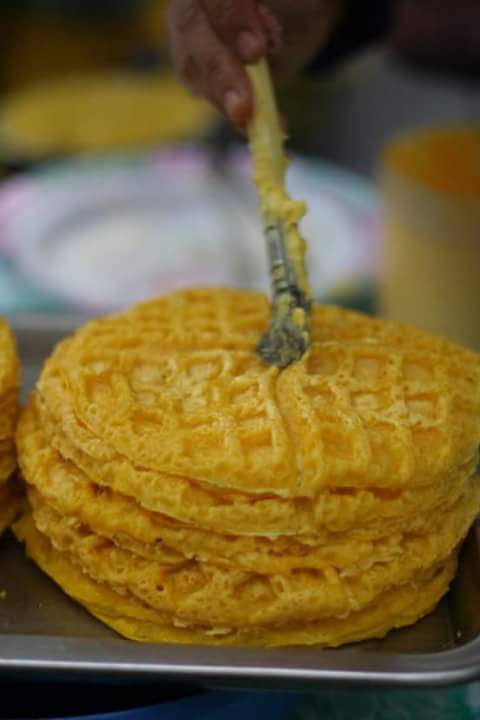
If you wish to try one at home — or start a small street food business — here’s the recipe.
Pinoy-style Hotcake
Equipment
- Mixing bowl
- Frying pan
Ingredients
- 4 cups all-purpose flour
- 3/4 cup white sugar
- 2 tbsp baking powder
- 2 cups milk
- 8 tbsp unsalted butter
- 1 large egg
- 2 tsp vanilla extract
- 1/2 tsp yellow food coloring
Instructions
- Mix all ingredients except butter and margarine
- Heat margarine on a pan
- Place 1/3 cup of mixed ingredients on a pan then cover and leave for a minute.
- Turn it up side down and leave for half a minute
- Remove from heat
- Put margarine and sprinkle white sugar on top

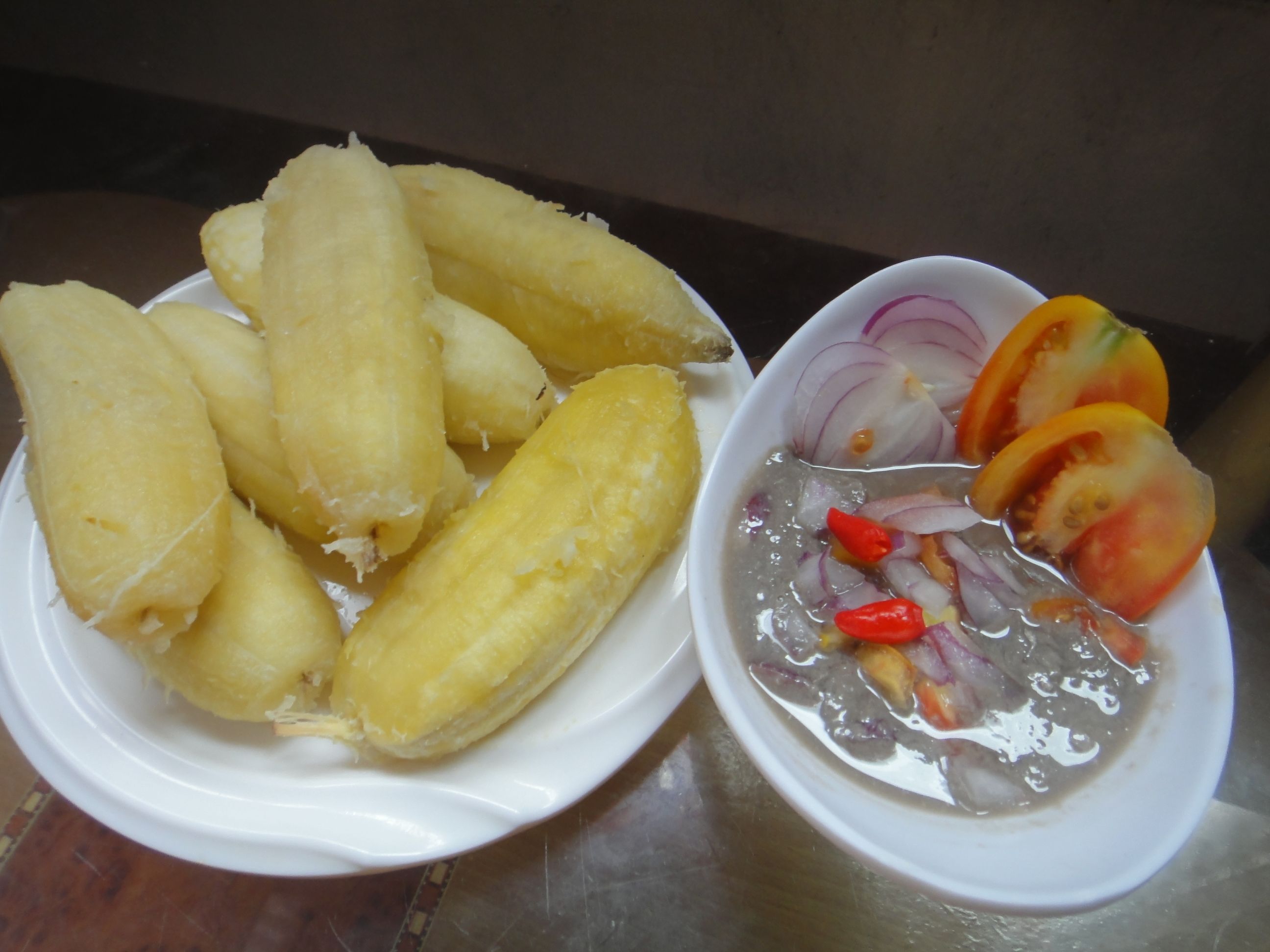
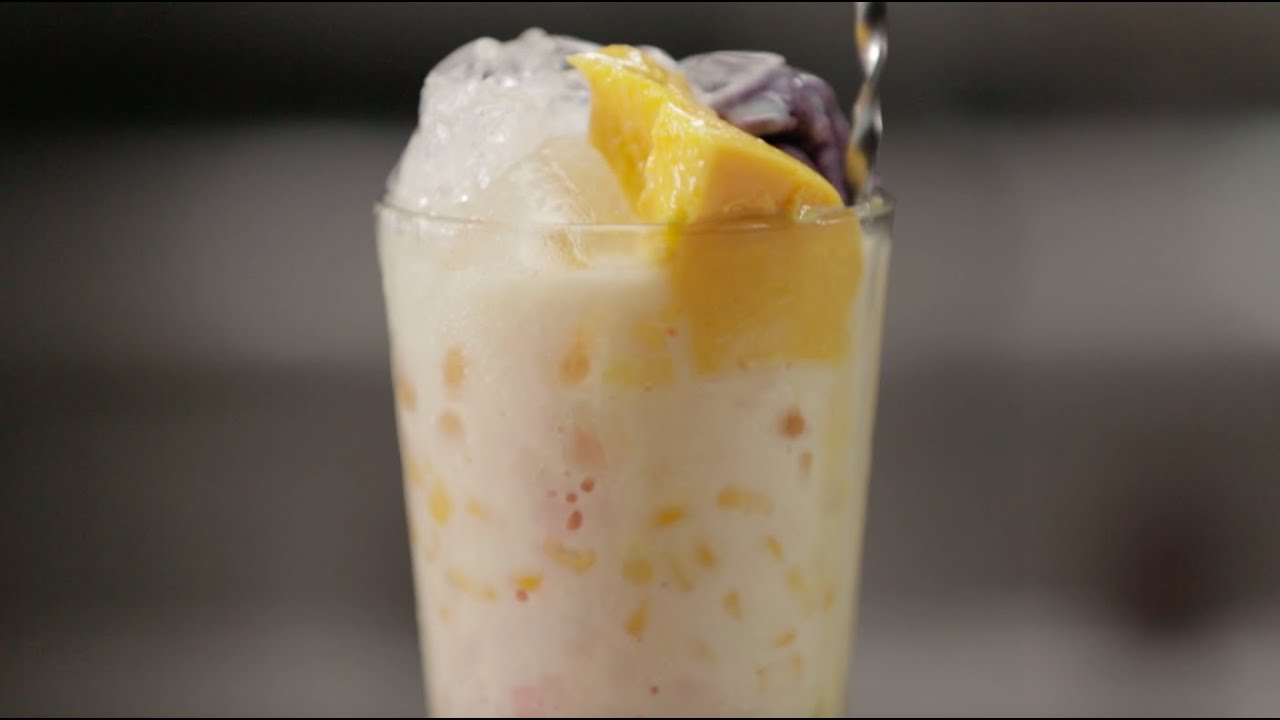
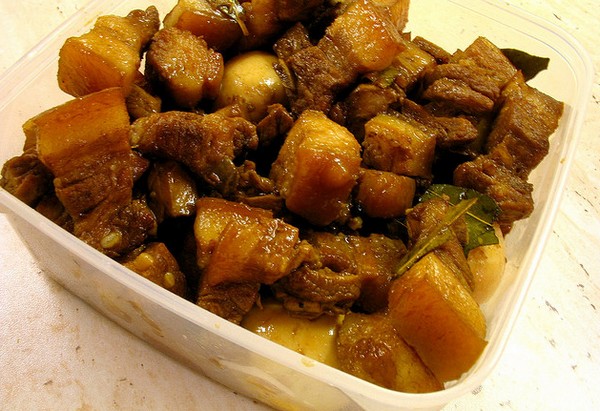
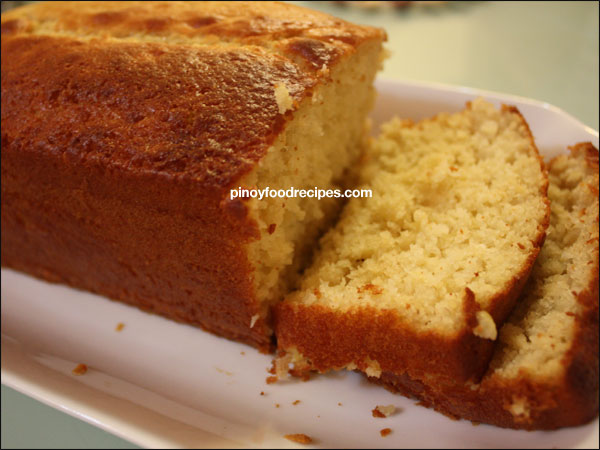
I love hotcakes! Its my favorite snack!.
ARE YOU SURE THESE ARE THE MEASUREMENTS??
What kind of waffle maker did you use?
Hi, need to know on the recipe you said Mix all ingredients except butter and margarine where I’m gonna put the butter at the end or beginning?